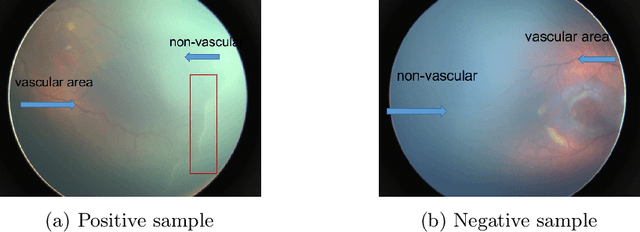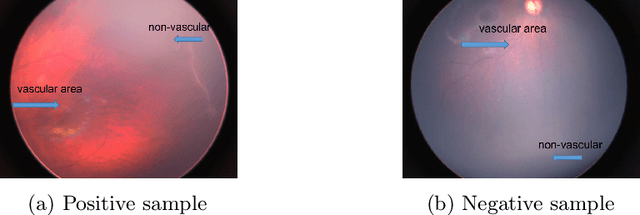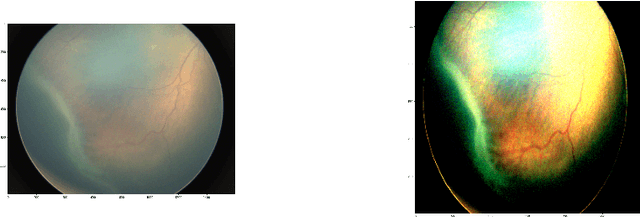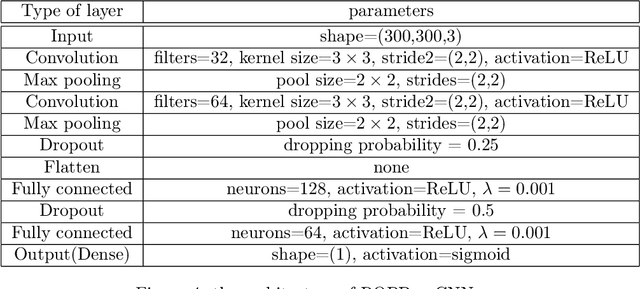Early Detection of Retinopathy of Prematurity in Retinal Fundus Images Via Convolutional Neural Networks
Paper and Code
Jun 12, 2020



Retinopathy of prematurity (ROP) is an abnormal blood vessel development in the retina of a prematurely-born infant or an infant with low birth weight. ROP is one of the leading causes for infant blindness globally. Early detection of ROP is critical to slow down and avert the progression to vision impairment caused by ROP. Yet there is limited awareness of ROP even among medical professionals. Consequently, dataset for ROP is limited if ever available, and is in general extremely imbalanced in terms of the ratio between negative images and positive ones. In this study, we formulate the problem of detecting ROP in retinal fundus images in an optimization framework, and apply state-of-art convolutional neural network techniques to solve this problem. Experimental results based on our models achieve 100 percent sensitivity, 96 percent specificity, 98 percent accuracy, and 96 percent precision. In addition, our study shows that as the network gets deeper, more significant features can be extracted for better understanding of ROP.
 Add to Chrome
Add to Chrome Add to Firefox
Add to Firefox Add to Edge
Add to Edge